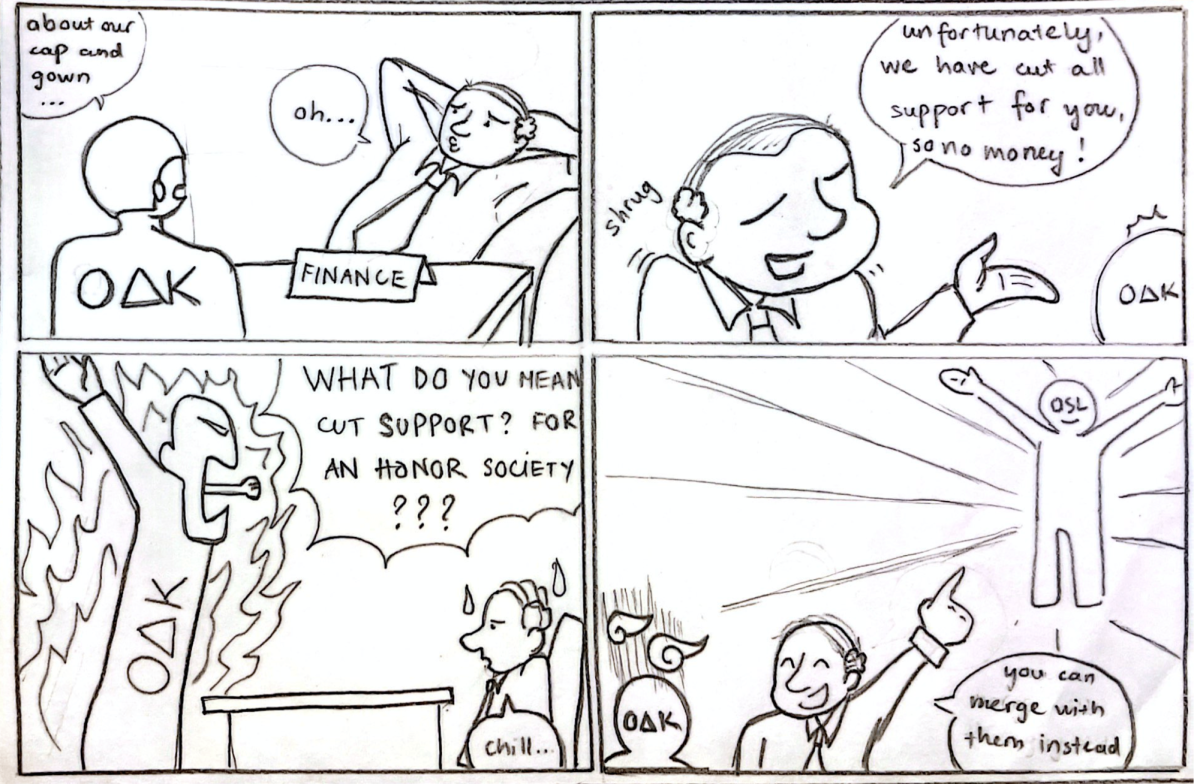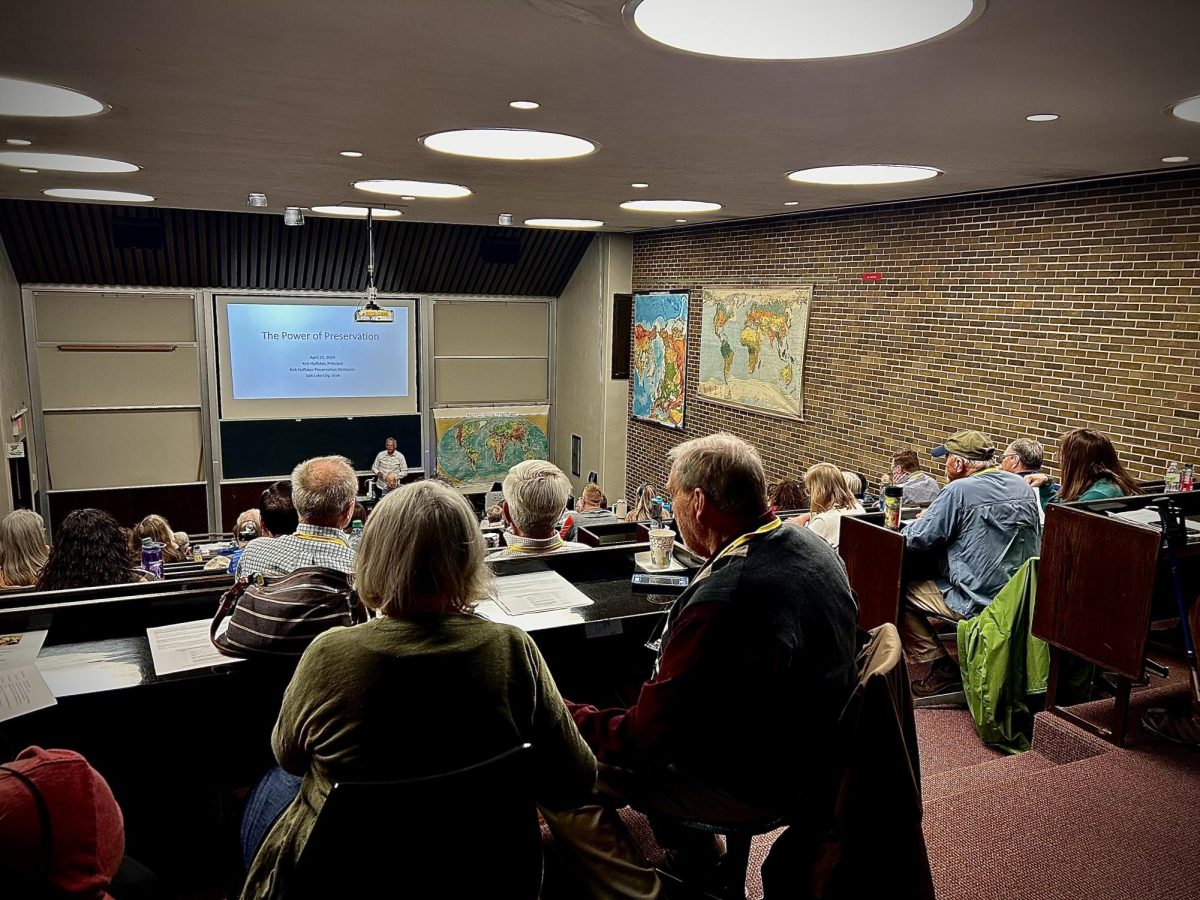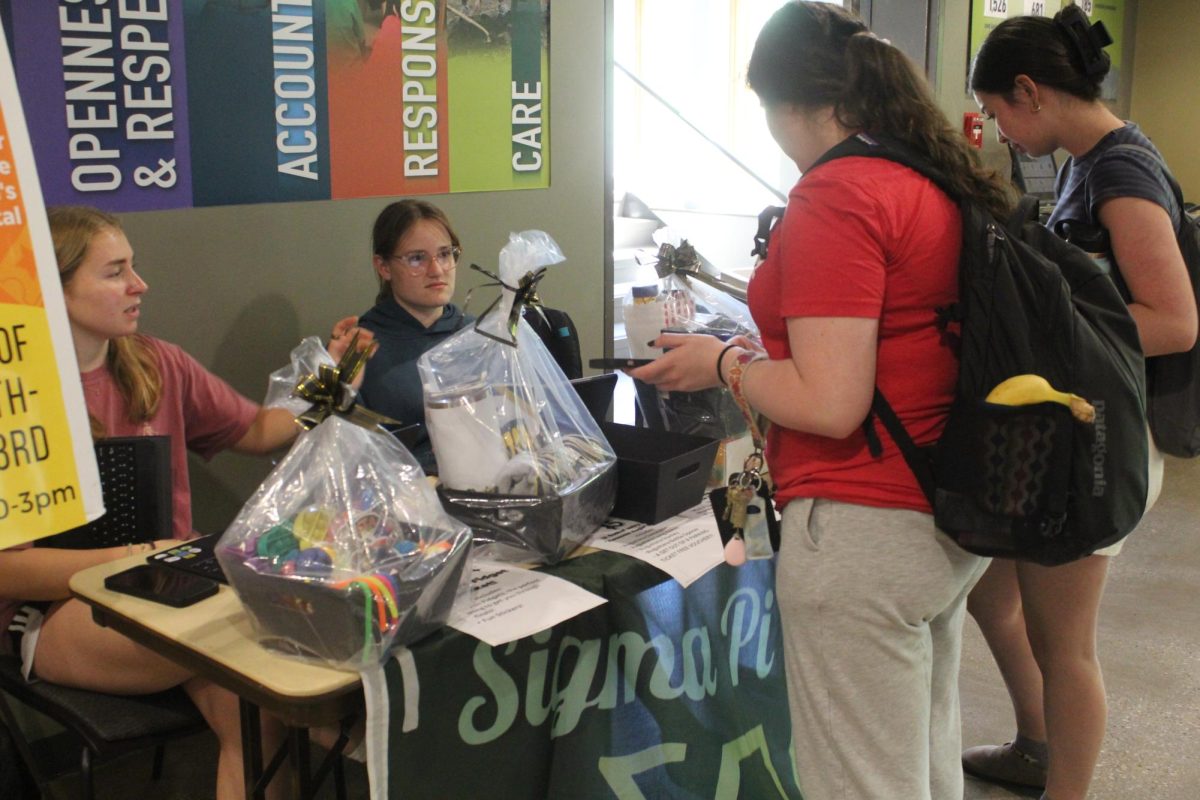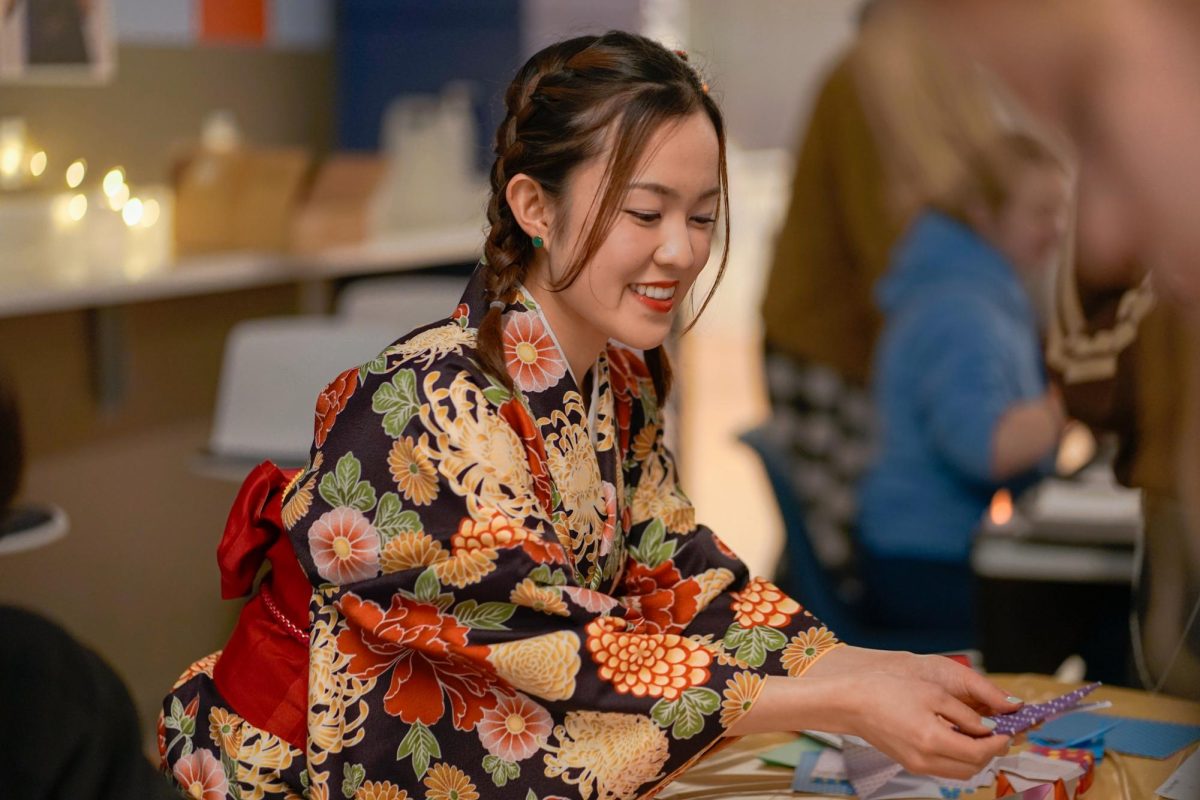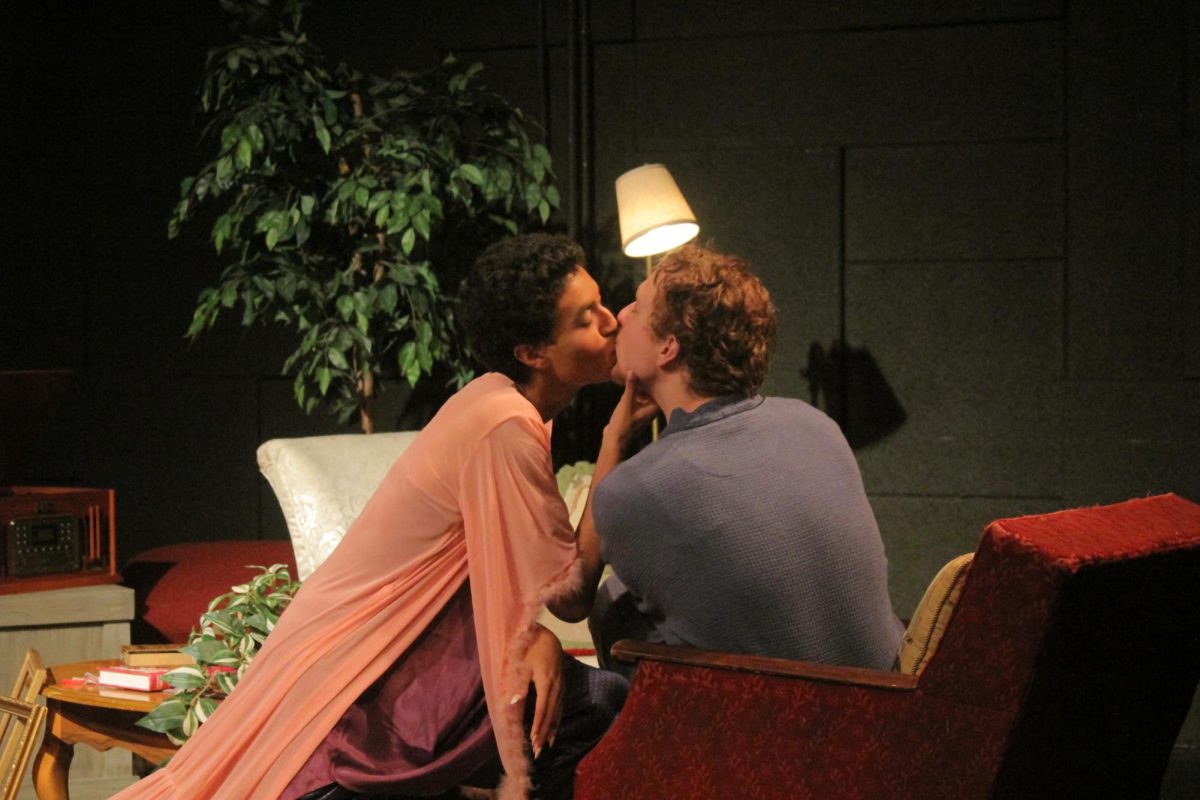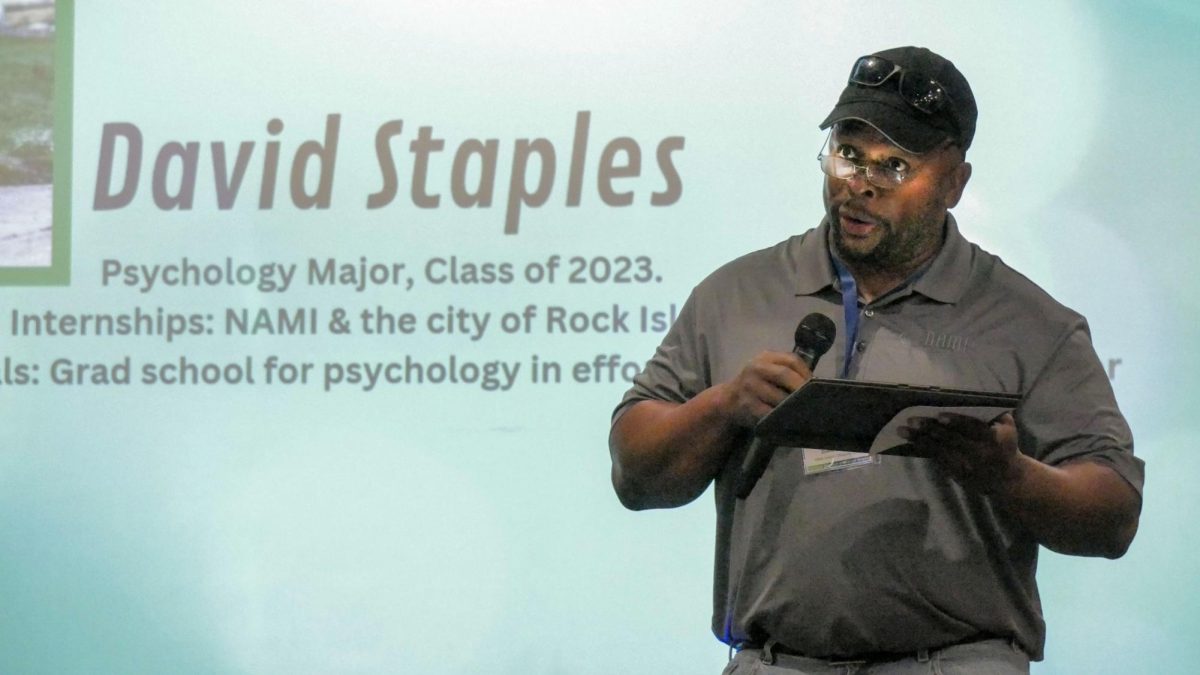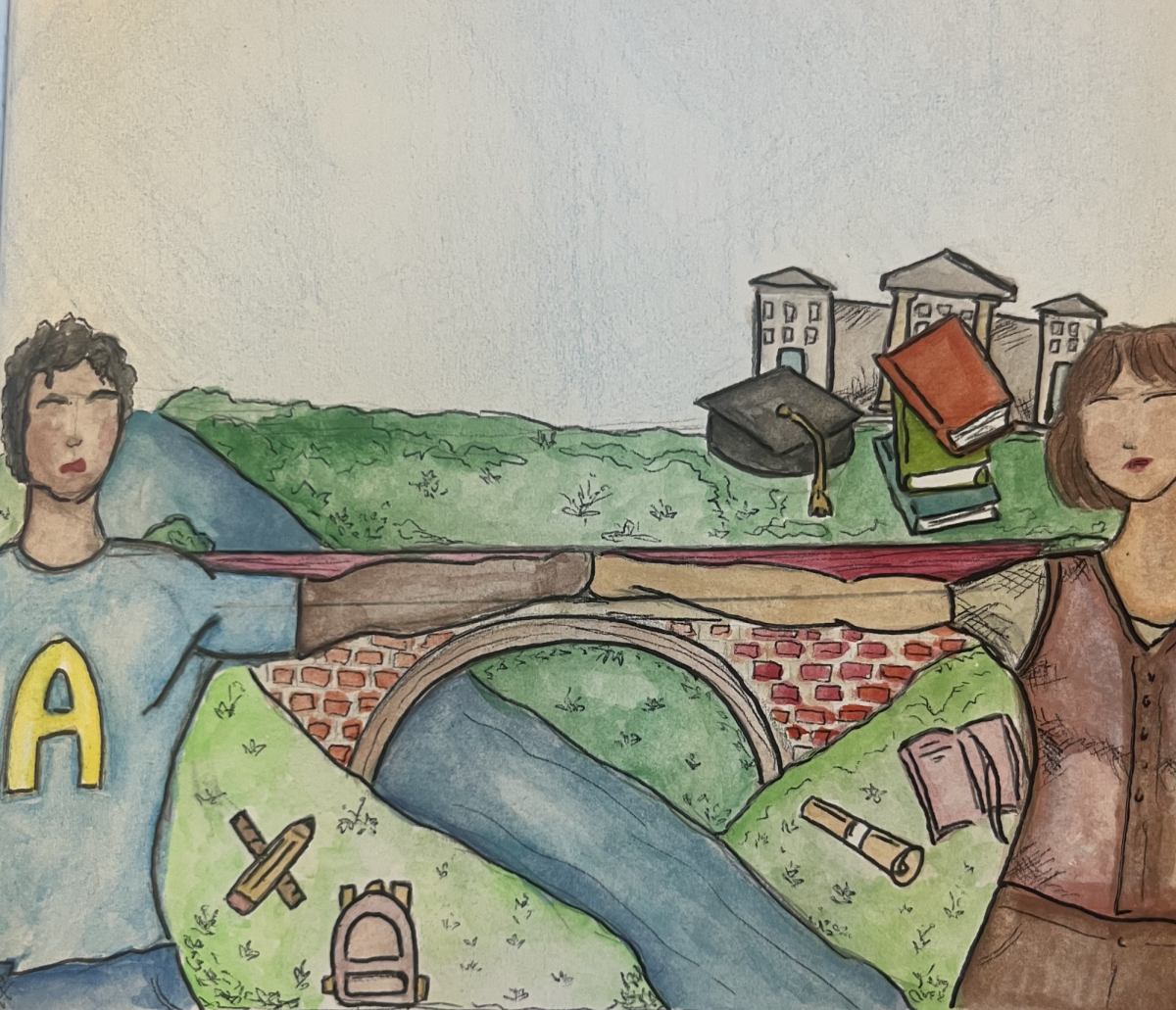Students gathered in Hanson on Oct. 4 to watch “This Changes Everything,” a 90-minute documentary exploring the dangerous global struggle between the economy and the increasing global temperature.
The film is based on journalist Naomi Klein’s book, “This Changes Everything: Capitalism vs. the Climate” and deals with the environmental and financial issues that come with extreme energy extraction all over the world.
Sociology and geology students were offered extra credit opportunities to view the film, with non-course students also at the viewing. Junior Jodie Kirschner, who has watched the film three times, credits the film for a major shift in her world views and is encouraged by the growing number of interested students every time the film is shown.
“When I first saw the film, I didn’t really ever connect climate change to the economic system that we are involved in, so that was really eye-opening to me. A lot of the times when you see climate change documentaries, it’s really depressing and crushes your soul, but this one is really hopeful because it goes around the world and shows all the different examples of how change is actually possible.” Kirschner said, “It makes you feel like you can make a difference even if you’re just one person, and it’s cool to see how much more full the room is every time.”
Before the film started, a few students gave speeches about more environmental problems and how the Augustana community could take larger responsibility in lowering its impact on the environment. With the global carbon dioxide concentration passing what many scientists call “the point of no return” this past week, environmental sociology professor, Dr. Angie Carter, sees a need for this documentary now more than ever before.
“I think its important that we’re talking about climate change because it already is impacting our lives: we had flooding along the Mississippi River here last week into the parks and Cedar Rapids, and two hours west of here in Iowa last week, they had the second 500 year flood in 8 years. Climate change is here. We need to be able to talk about it, and I think this documentary does a good job of showing that it is a social movement and that people are trying to think creatively about our responses and how we can mitigate and adapt. It’s pretty grim– lots of times– when we talk about climate change. But in this film, she talks about it as an opportunity,” Carter said.
Senior Logan Green sees the urgency of addressing environmental issues as a community. During Symposium Day this fall, Green gave a talk about carbon emissions and the necessity for fossil fuel divestment, a movement that other colleges in the country have started that calls for the cutting away of “stocks, bonds, or investment funds that are unethical or morally ambiguous” in order to show opposition for practices that are environmentally unsound.
“The future unfortunately doesn’t look spectacular right now and so Augustana wants to make a difference and I believe it is our responsibility to do that very quickly– not 10 or 20 years from now. But in the next couple of years,” Green said.
As a student and environmentalist, Green is pushing for Augustana to take more responsibility over their environmental impact and hopes to create something sustainable: a discussion of short and long-term issues with conglomerate environmental groups on campus to help make Augustana more environmentally safe.
Other students called for the Augustana community’s involvement in mitigating negative environmental effects on people– especially those in marginalized areas. Tensions are rising over the Dakota Access Pipeline, a pipeline that is being pushed to be built so that oil can be extracted more efficiently. However, this pipeline goes through sacred Native American burial sites, and conflicts have risen over what is to be done. The oil pipeline is guaranteed to eventually burst, leaving those who live there with concerns that the oil will contaminate their drinking water. Protests are currently being held, and sophomore Vanessa Dominguez feels that Augustana has a place supporting the struggle of those Native Americans.
“These are Native Americans– who continuously have been marginalized and oppressed by the government and told that their voices do not matter– and this is a fight that they’re going through. I think this is important to Augustana students who have the privilege of attending a liberal arts institution,” Dominguez said.
Though she hopes to be able to bring a group of Augustana students to stand with the native groups later this fall in Dakota or to Iowa, where construction on the pipeline has already been started, she acknowledges that there is a cultural boundary that needs to be respected and understood.
“I think it’s very important that we remember that any time we are trying to stand in solidarity with somebody, that is all we’re doing. We’re not trying to go in and save the day: it’s us simply saying, ‘We might not exactly understand your struggles, but we understand that they are affecting you and in turn they are affecting us, so we stand behind you and beside you and we want to help you in this fight,'” Dominguez said.
The film was shown for the first time at the social justice symposium last winter by Dr. Carter, who believes that climate justice should be included in the discussion about social justice. According to Carter, there is more momentum now than in the past for students to get involved in environmental action to make Augustana a more sustainable place.
“Students are recognizing that this is something that is an important opportunity to have for their future careers: to be able to engage in sustainability efforts here and now. They want to engage in some way, because otherwise it seems really disempowering to talk about climate change if you feel like you can’t do anything, so finding those opportunities on campus or ways you can engage with other things outside campus gives us a vehicle to feel like we can help. We can’t stop climate change; its happening now. But we can help lessen the impact on people,” Carter said.
"This Changes Everything" Calls for Sustainable Changes on Campus
October 13, 2016

